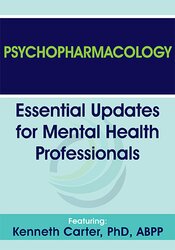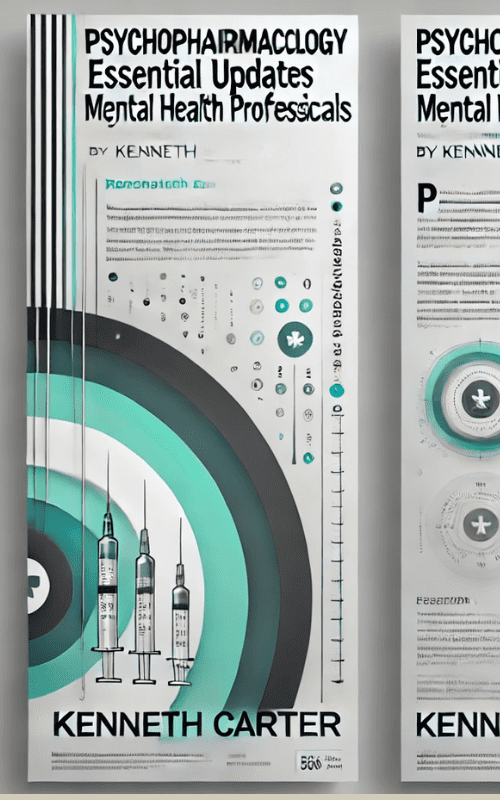Psychopharmacology-Essential Updates for Mental Health Professionals – Kenneth Carter
Psychopharmacology-Essential Updates for Mental Health Professionals – Kenneth Carter has the same quality as the author’s salapage.
Overview
Salepage check: Psychopharmacology-Essential Updates for Mental Health Professionals
Author: Kenneth Carter
- Faculty:
- Kenneth Carter
- Duration:
- 3 Hours 2 Minutes
- Format:
- Audio and Video
- Copyright:
- Dec 02, 2020
Description
If you are like a lot of therapists, many of your clients are taking psychotropic medicines prescribed by a number of different health care professionals. Despite who wrote the script, it is your responsibility to know your clients’ symptoms and reactions to medications, and to coordinate their care.
This intensive focuses on providing practical and useful information about antidepressants, anti-anxiety medications, and medication for insomnia, as well as the tools to handle the ethical decisions that surround psychopharmacology. Get to the “bottom line” on the most prescribed antidepressants, anti-anxiety medications, and medication for insomnia on the market today, and learn how to discuss scope of practice with your patients in order to optimize their care. The goal is for you to leave better prepared to communicate with your clients as well as the prescribers.
Handouts
| Manual – Psychopharmacology: Essential Updates for Mental Health Professionals (3.4 MB) | 40 Pages | Available after Purchase | |
| Transcript (289.8 KB) | 49 Pages | Available after Purchase |
Outline
- Why (and what) you should know about psychopharmacology
- Questions you can expect from clients and prescribers and how to answer them
- Latest information and newest medications for depression, anxiety, and insomnia
Faculty

Kenneth Carter, PhD, ABPP Related seminars and products: 3
Kenneth Carter, PhD, ABPP, is a board-certified clinical psychologist and professor of Psychology at Oxford College of Emory University in Atlanta, Georgia. Dr. Carter received his MA and PhD in clinical psychology from the University of Michigan in Ann Arbor and a postdoctoral master’s degree in clinical psychopharmacology from Fairleigh Dickerson University. Dr. Carter has taught clinical psychopharmacology classes at Emory University since 2005 and has presented highly rated Psychopharmacology workshops to clinicians throughout the United States since 2010.
Dr. Carter has served as a senior assistant research scientist in the Epidemic Intelligence Service of the Centers for Disease Control and Prevention. He has been a psychotherapist and researcher for more than 20 years, during which time he has garnered awards from the National Institutes of Health, the National Heart, Lung and Blood Institute, and the University of Michigan. Dr. Carter has presented at numerous conferences and written several books and articles on introductory psychology, neuropsychology, and psychopharmacology.
Speaker Disclosures:
Financial: Dr. Kenneth Carter is a professor at Oxford College of Emory University. He receives a speaking honorarium from PESI, Inc.
Non-financial: Dr. Kenneth Carter has no relevant non-financial relationship to disclose.
Curriculum
FAQs
Requirements
- A basic understanding of mental health disorders and psychopharmacological treatments.
- Access to a computer or mobile device with a stable internet connection.
- Familiarity with professional terminology related to psychology and pharmacology.
- A willingness to explore updated psychopharmacology strategies to enhance patient outcomes.
Features
- Comprehensive Course Material: Detailed coverage of psychopharmacological updates, including new medications and therapies.
- Practical Applications: Guidance on integrating the latest findings into real-world clinical settings.
- Expert-Led Insights: Led by Kenneth Carter, a renowned expert in psychopharmacology.
- Affordable Pricing: Save up to 80% on original pricing by purchasing through this platform.
Target audiences
- Mental health professionals, including psychologists, psychiatrists, and therapists.
- Graduate students or professionals in psychiatry, nursing, or pharmacology.
- Clinical social workers and counselors seeking to improve their pharmacological knowledge.
- Healthcare providers aiming to incorporate evidence-based practices in mental health care.


